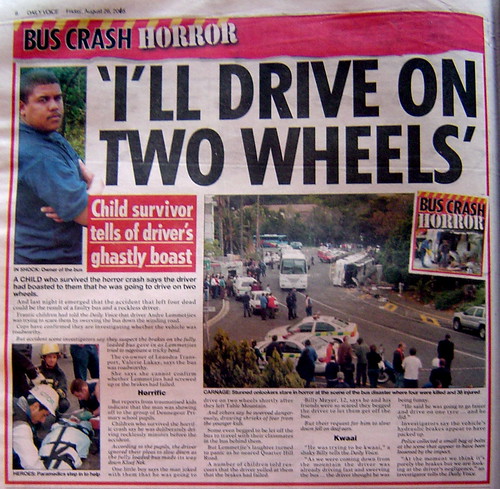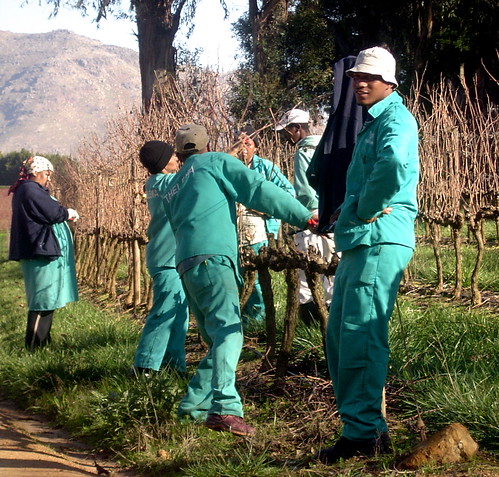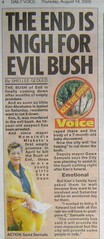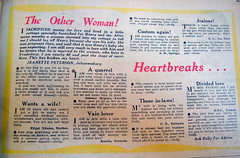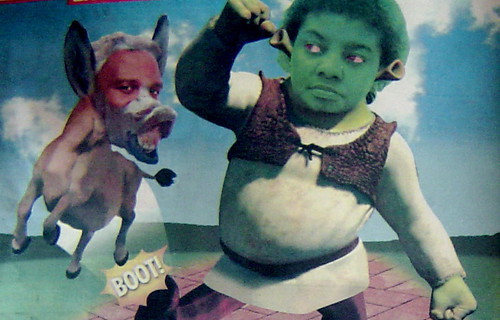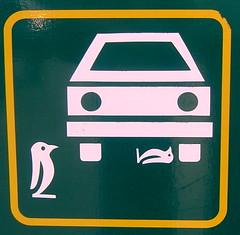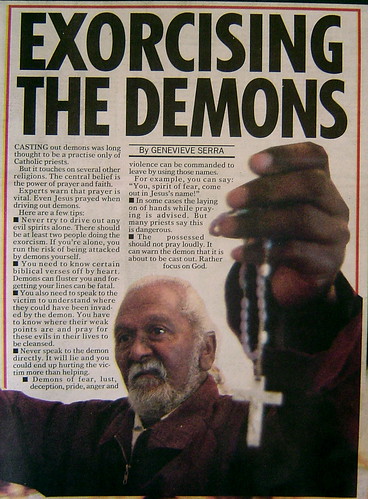As summer approaches, we've got a bunch of folks lined up to visit us. For all of you who have already booked your time with us, and for any of you who think you might be stopping by, we've compiled a suggested reading and viewing list to get you ready for your trip. We've got lots of non-fiction, some novels, and lists of our favorite guidebooks, websites and movies.
I'm sure there are plenty of other books and movies out there that would give visitors an insight into the country, so if any of you have any suggestions for us, please do pass them along. But these are the best we've stumbled over so far that illustrate South Africa's history, culture and its current issues.
Non-fictionWe've got plenty more non-fiction books to suggest, if you somehow manage to exhaust these. Just e-mail us.
1.
Long Walk to Freedom, by Nelson Mandela. Mandela's autobiography gives both an amazing insight into man who became the country's first democratically elected president, and a fantastic account of the long years of struggle for democracy. It gets better and better as it goes along, and, amazingly, the account of the decades he spent behind bars are perhaps the most compelling part. It is the one book any visitor to South Africa should read before they arrive... though more likely, you'll feel compelled to pick it up once you get here.
2.
Country of My Skull, by Antjie Krog. The seminal book on the Truth and Reconciliation Commission, the group that investigated all the human rights violations and political killings of the apartheid era. Krog covered the hearings as a journalist, though she is actually a poet.
3.
Beyond the Miracle, by Allister Sparks. Picking up where Mandela's book lets off, this is an account of the first nine years following Mandela's election in 1994. It discusses some of the amazing successes of the country and its new leaders, and talks about the divisions that still exist. I thought it would be very dry; it was anything but. I discussed one chapter of the book previously
here.
4.
Drum: The Making of a Magazine, by Anthony Sampson. Coincidentally, Drum magazine is the topic of Katie's research while we're down here, but this book is fantastic even for people like me, who aren't devoting a year of their life to writing a paper about it. I think it's so great partially because Sampson became editor of the magazine at such a pivitol point in both the history of South Africa and a pivitol point in the history of the magazine...and when he was only 24 years old. It was re-released last year in South Africa, though it looks like you can't get it in the U.S. yet.

5.
Kaffir Boy, by Mark Mathabane. Often compared to Richard Wright's Black Boy, this is the autobiography of a man who grew up in a shantytown on the outskirts of Johannesburg, enduring rascism, of course (the Afrikaans "k-word" in the title is just as disgusting as the "n-word" in the states), and the hardships of township life, with its gangs and extreme poverty.
6.
Thabo Mbeki and the Battle for the Soul of the ANC, by William Mervin Gumede. A current bestseller in South Africa, and I think it just came out in the U.S. This one is a fascinating, and at times chilling, portrait of contemporary politics in South Africa. It's both a political biography of South Africa's current president and a discussion of the future of the ruling political party.
7.
My Life, Part 1, by Godfrey Moloi. A memoir from a jazz musician whose life managed to intersect with all sorts of fantastic characters. He certainly doesn't varnish the truth: he stabs a lot of men (though with the knife in his left hand, he says, so he doesn't kill them), beats up a few women and goes to jail for posession of a handgun. But he also has a fantastic voice that makes this story quite compelling.
Contemporary FictionUnlike the non-fiction section, we haven't read enough South African fiction to suggest more than four real keepers.1.
Disgrace, by J.M. Coetzee. This one earned the author an unprecedented second Booker Prize. In it, the life of a white professor of literature working in Cape Town falls apart entirely. First he loses his job, then moves to the country and encounters an extreme act of violence. The character is unlikeable, the plot is depressing, and the book is absolutely compelling.

2.
The House Gun, by Nadine Gordimer. A fascinating book by South Africa's other internationally acclaimed contemporary author. Set in the first few years of democracy, it's a sort of detective story. Instead of a whodunit, though, it's more of a whydunit. It grapples with the persistent issue of violent crime in South Africa.
3.
Whale Caller, by Zakes Mda. Set in Hermanus, which Katie and I will probably drag all our visitors to go see. The main character can comune with whales through a kelp horn, and is happy to make this the extent of his interaction with the world until the town drunk, a woman named Saluni, starts following him around.
4.
The Persistence of Memory, by Tony Eprile. A novel about a man who has little going for him, excpet a near-photographic memory. He works for an Army movie crew, filming the South African government's "secret wars" in Namibia and Angola in the 1980s, and is later called to testify about the attrocities he witnessed in front of the Truth and Reconciliation Commission. Less dark than it sounds.
GuidebooksI hate to say it, but the Lonely Planet guides for both Cape Town and South Africa are pretty weak. Buy these instead.1.
Time Out Cape Town. Easily the best Cape Town guide book out there, and we've read a lot of them. We've loaned it to lifelong Capetownians, and they give it an enthusiastic thumbs up.
2.
Rough Guide: South Africa, Lesotho & Swaziland. Our go-to book for the rest of the country. It also has plenty of background info on South African history and culture, including a section in the back that inspired this post. The Fourth Edition just came out.

3.
John Platter South African Wine Guide. The bible for people heading to the winelands. Don't worry about finding it in the U.S., as you can get it in pretty much any bookstore or wine shop in South Africa, including at the Cape Town airport the minute you step off the plane. It reviews nearly every wine made in SA, and gives information on touring every winery. Indespensible.
4.
South Africa's Top Sites: Struggle. Once we arrived, our proximity in time to the recent struggle for democracy really started to hit home. This guidebook explores the heritage of the liberation movement, and points you to the places where that fight played out.
5.
Field Guide to African Wildlife. Good for safaris (we hope), and for identifying the birds in the tree right next to our deck. My aunt sent us this one. Thanks, AJ!
MoviesSome of these might not be available in the U.S. yet. We've seen more South African movies than this, but can't recommend any of the others in good conscience. Especially not the new movie on Drum or the film adaptation of Country of My Skull. But there also a few classics we still need to see.1.
Amadala! A Revolution in Four Part Harmony. A documentary about the role of music in the struggle for democracy.

2.
Red Dust. Staring Hilary Swank in the role of a South African who is returning from the U.S. to serve as the lawyer for a man seeking answers from the Truth and Reconciliation Commission.
3.
u-Carmen e-Khayeltisha. An adaptation of the opera Carmen, translated entirely into Xhosa (but with the original music) and set in the Cape Town township of Khayelitsha. It drags near the end, but the music and the setting are captivating.
4.
The God's Must Be Crazy. Laugh if you want, but a lot of South Africans love this movie. The director and much of the cast was South African.
WebsitesSo you can plan your trip and come up to speed on South Africa while pretending to work.
1.
Mail & Guardian Online. The website for what is probably South Africa's best newspaper.
2.
AllAfrica.com. Sort of like a Google News just for Africa, it has links to all the major stories from any given day, and you can focus on regions of the continent.
3.
Dining-Out.co.za. For finding all the great restaurants you'll be wanting to eat at, if the good exchange rate holds til you get here.
4.
Museums Online South Africa. A portal for all of South Africa's museums.
5.
Katie and Erik's Excellent Adventure. A pretty darn good blog about some Americans living in Cape Town.
 Some things in journalism are universal.
Some things in journalism are universal. 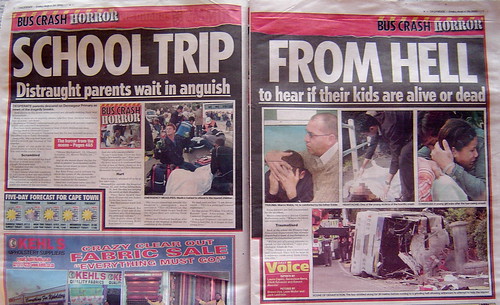 The Cape Town broadsheets gave it similar play.
The Cape Town broadsheets gave it similar play. Newsday, even though it's usually a tabloid in name only, would do almost all of the things that the Voice did: get the parents, get the bus company, get the early suspicions of what caused the crash (was it the maniac driver, the faulty breaks, or both?). Newsday would even throw out their usual topless women on page three, if Newsday usually featured topless women on page three. They don't. Not yet.
Newsday, even though it's usually a tabloid in name only, would do almost all of the things that the Voice did: get the parents, get the bus company, get the early suspicions of what caused the crash (was it the maniac driver, the faulty breaks, or both?). Newsday would even throw out their usual topless women on page three, if Newsday usually featured topless women on page three. They don't. Not yet.